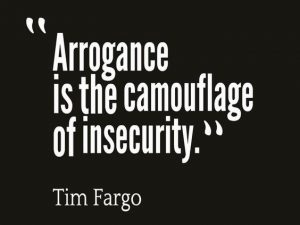By Steve Moran
I have a confession to make . . . When Rush Limbaugh first became a national sensation in the early 1990s I was a huge fan. While his politics were always conservative, he talked about all kinds of things and described himself as an entertainer, not a political pundit. I learned new things and learned how to think about things in new ways.
I even went to one of his traveling roadshows, where he spent 90 minutes or so standing on a stage talking about whatever the audience wanted to talk about.
There was this consistent underlying sense that he was this insecure little kid that no one really liked very much. But who had somehow become this cultural phenomenon and that he was delighted by it, in awe of it, and even humbled by it.
 Then . . .
Then . . .
Somehow along the way, he went from humility and little kid-like wonder that was amazing to this blustering ‘I am always right, and everyone who doesn’t agree with me is a problem’ cult media personality. It is impossible to know exactly what happened and why that sense of wonder and curiosity was displaced by arrogance.
The Leadership Trap
When I was younger I would see perfect people and perfect families and would be so jealous, knowing what a mess my family was and what a mess I was. Then one day as a youth leader I got to talking to one of my teens about some challenges she was facing in her life. And it occurred to me that if I had been one of her teen peers I would have seen her having that perfect and enviable life.
Yet she was a bundle of insecurity. Some of it came from her family and some were just because she was human and a teenager. It was the beginning of a real awaking that when I see someone who has a perfect or near-perfect life that is worth envying, it just means I don’t know them very well. Because even though I have some very successful friends who have, on the surface perfect enviable lives, I promise you, they have real stuff they are struggling with.
The Hardest Part of Leadership
Being a leader, particularly a successful one, changes you. It changes how you think about people and yourself. It changes how you interact with people. Some of that is internal and some external, because there will be more people who want more of your time, attention, and energy. Too often, successful leaders react in arrogant ways.
This makes it super hard to be an effective leader. The worst part is that it becomes almost impossible for these leaders to even see that they have a problem because they have convinced themselves that they are smarter and more deserving than everyone else. They place themselves above criticism.
What makes this really hard is that, at least in some cases, it works for a while. But in the long run, it will take a toll on the leader and the organization or parts of the organization they are responsible for.
While I dislike it when people call themselves servant leaders (and I admit this may be a flaw in me), I believe that being a servant leader is the right approach . . . sort of. It is really more than that, it is about being willing to be wrong, being willing to not be the smartest person in the room. And it is being willing to know that everything needs to be on the table for rethinking.
Click here to read comments and join the conversation about this article.





